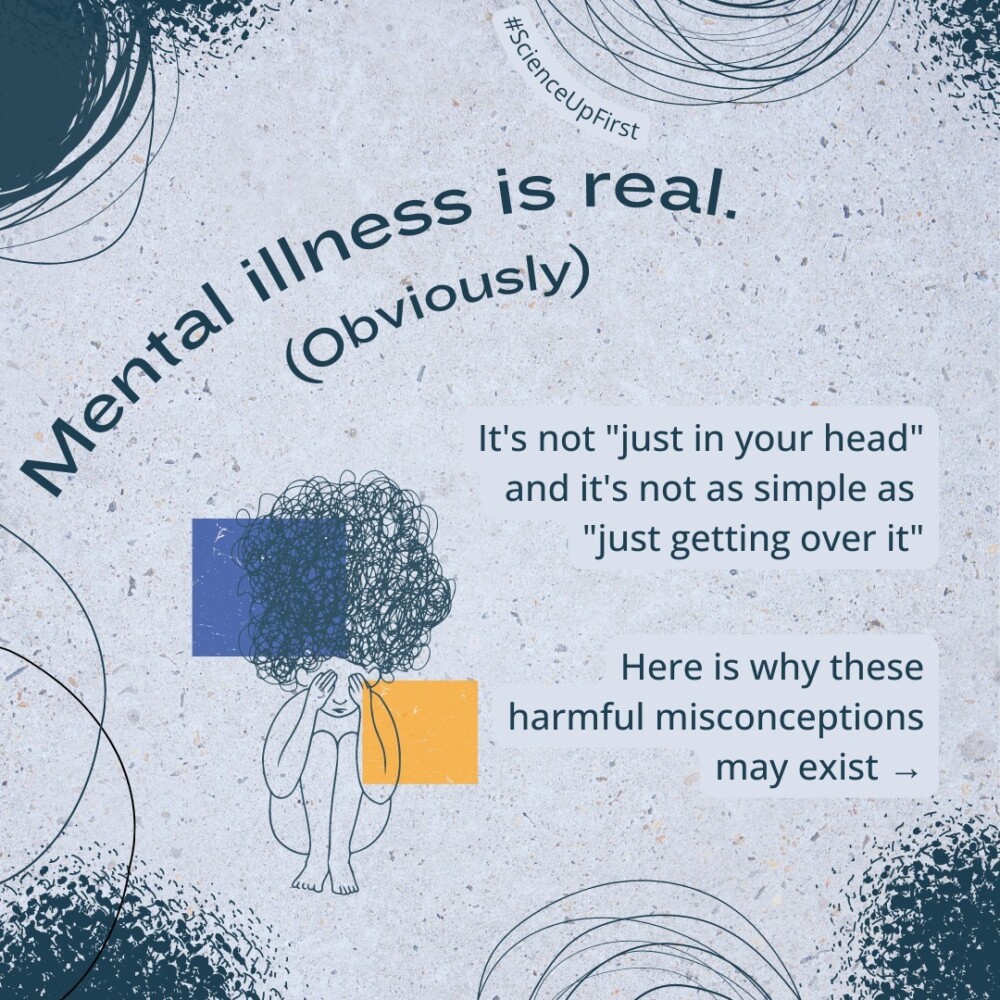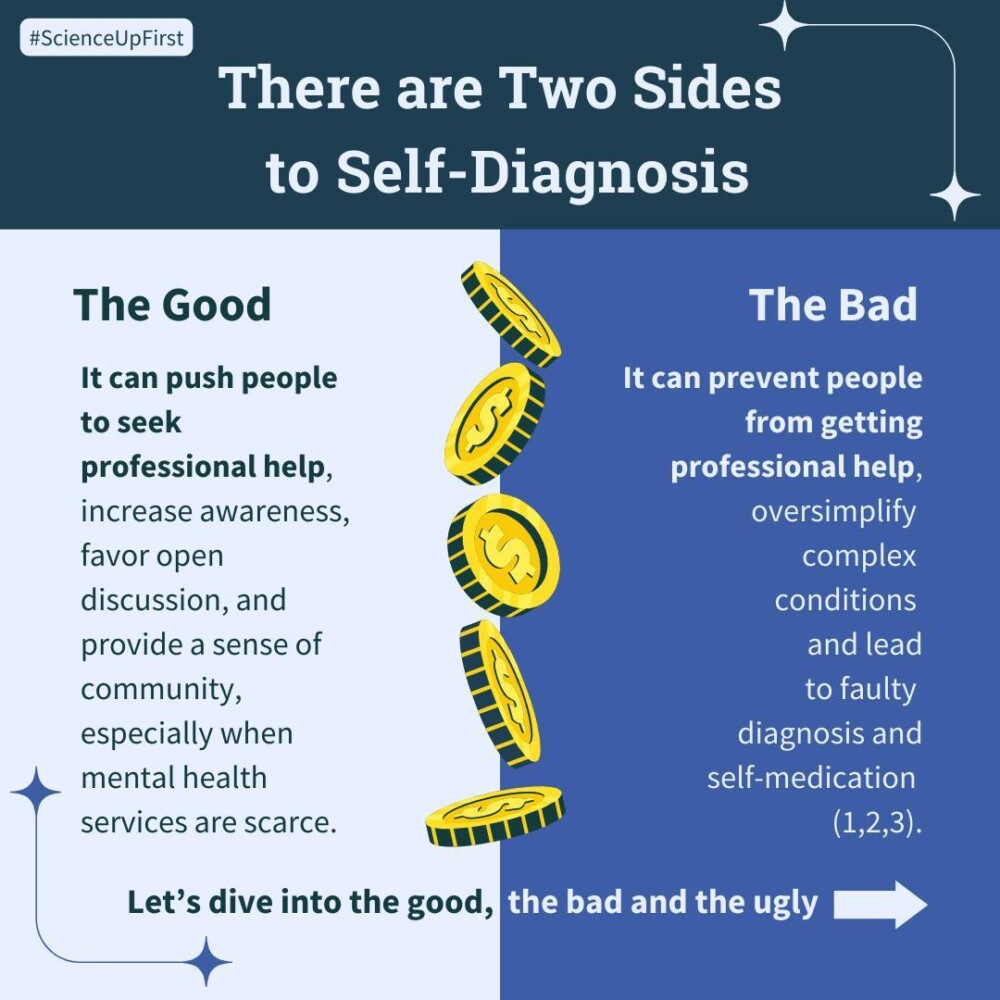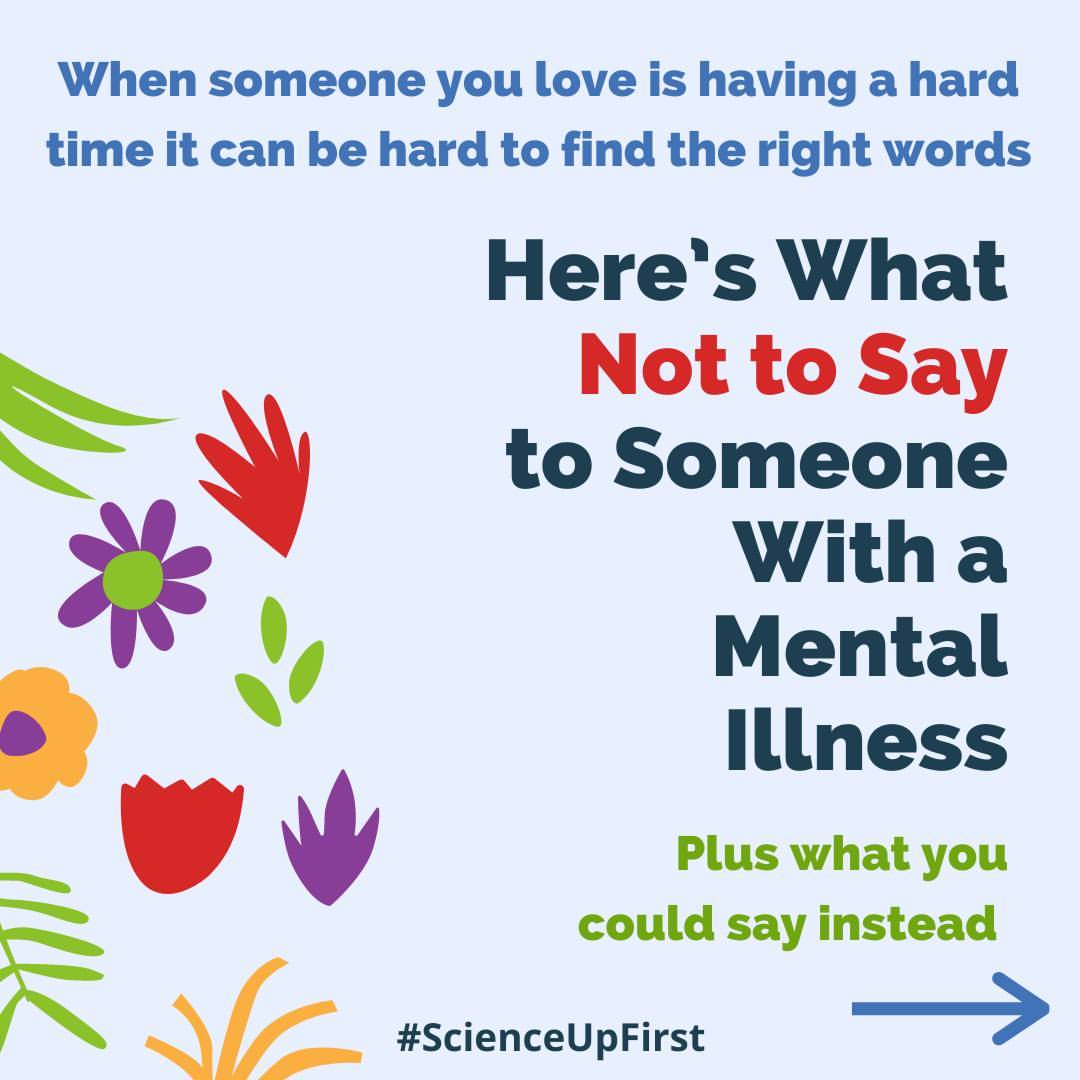
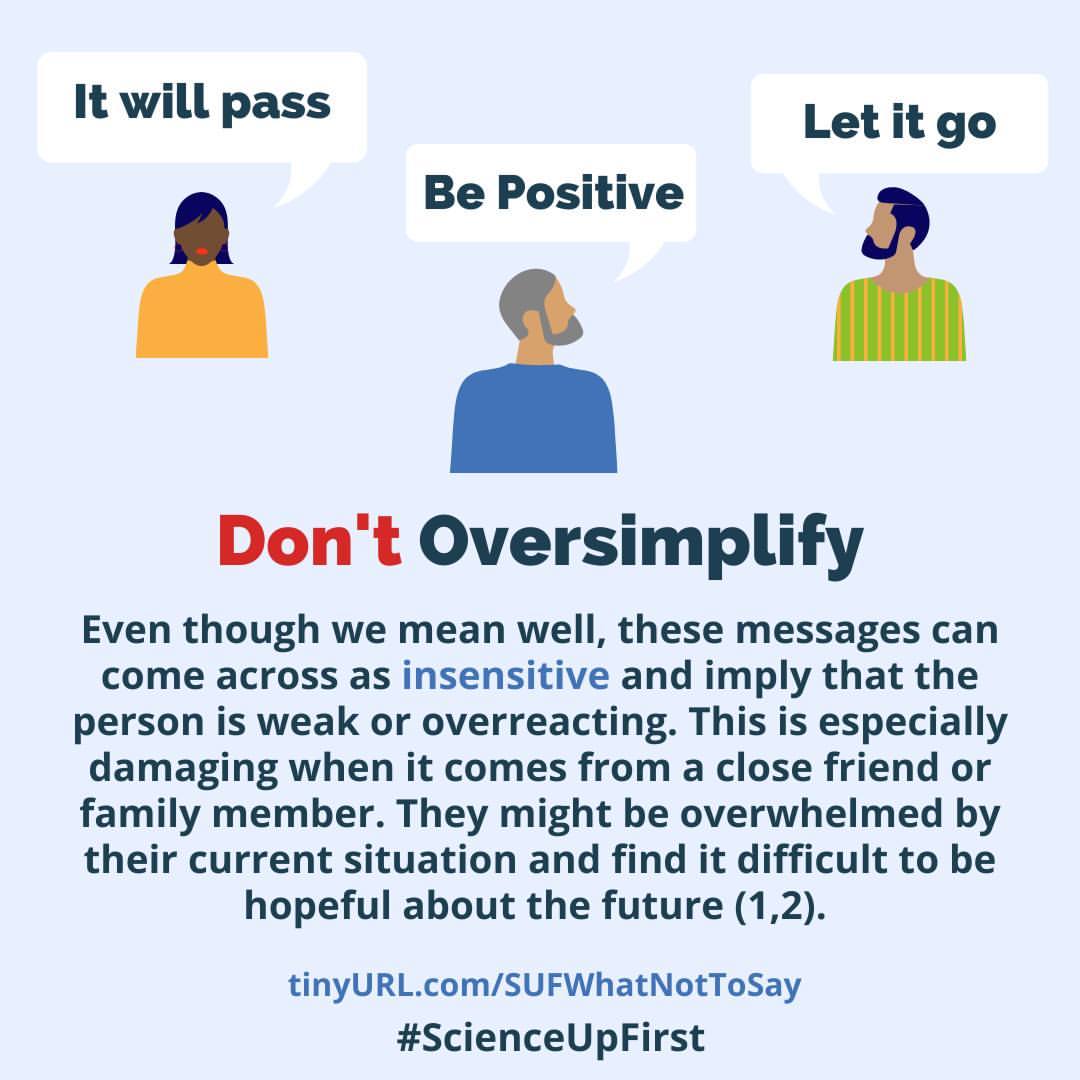
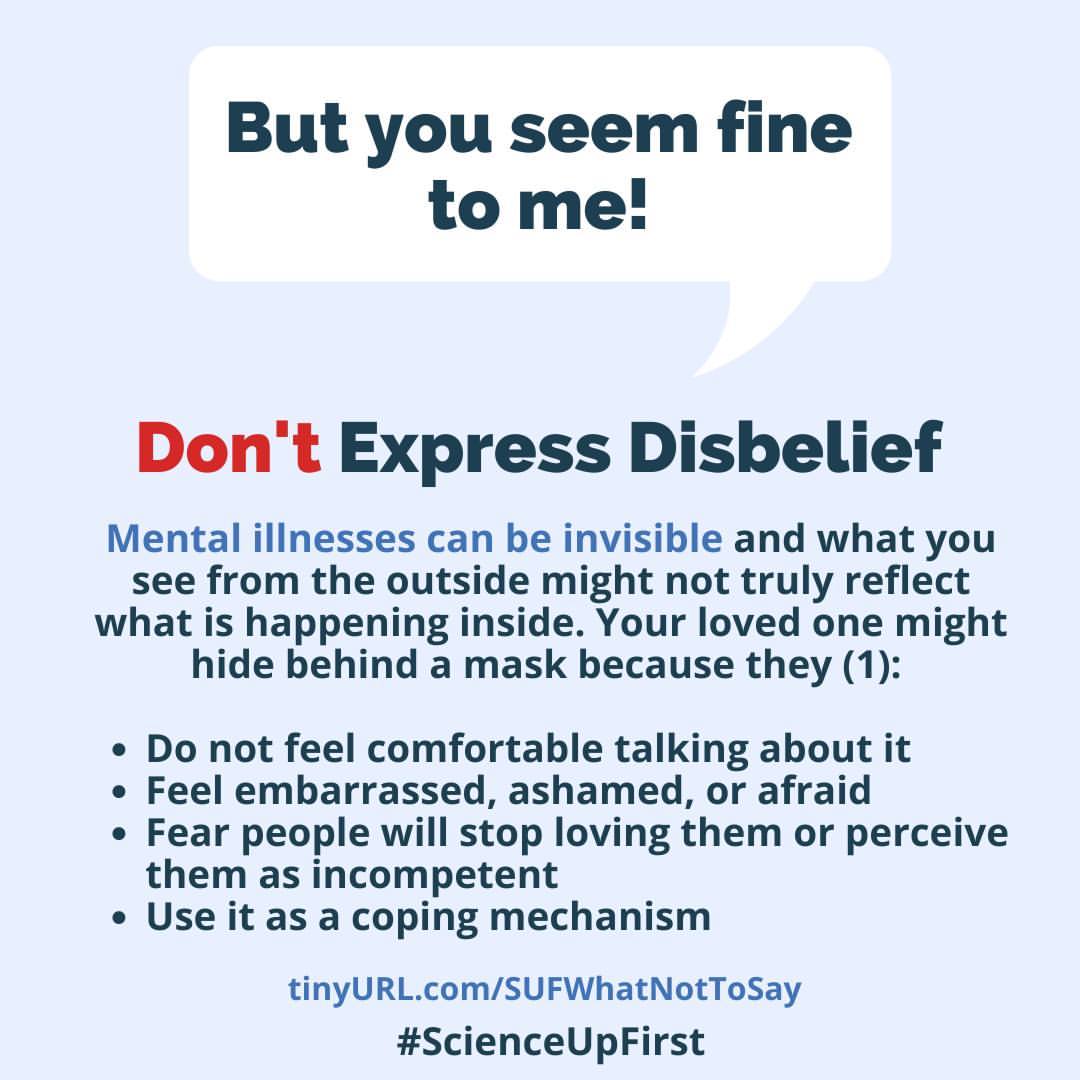

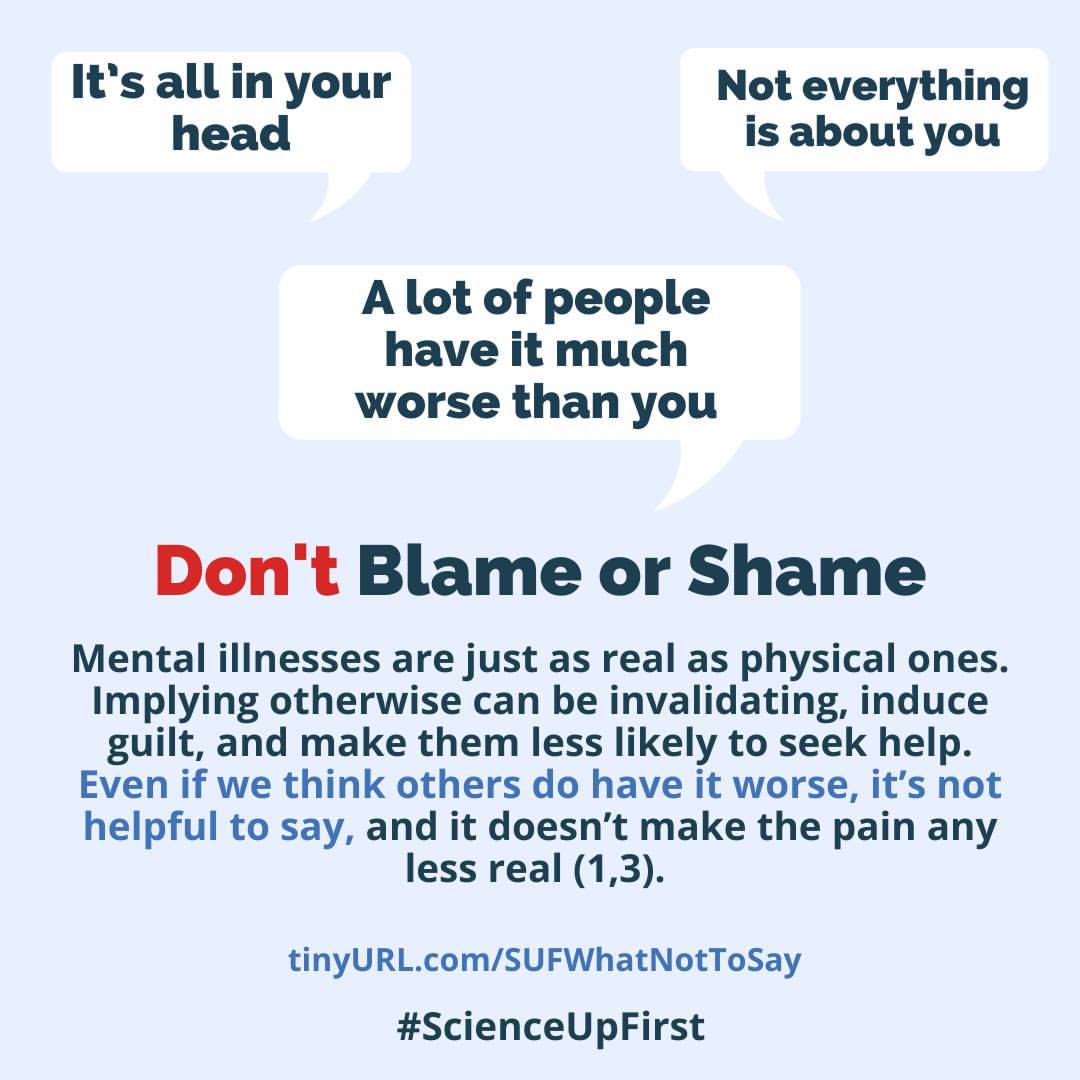
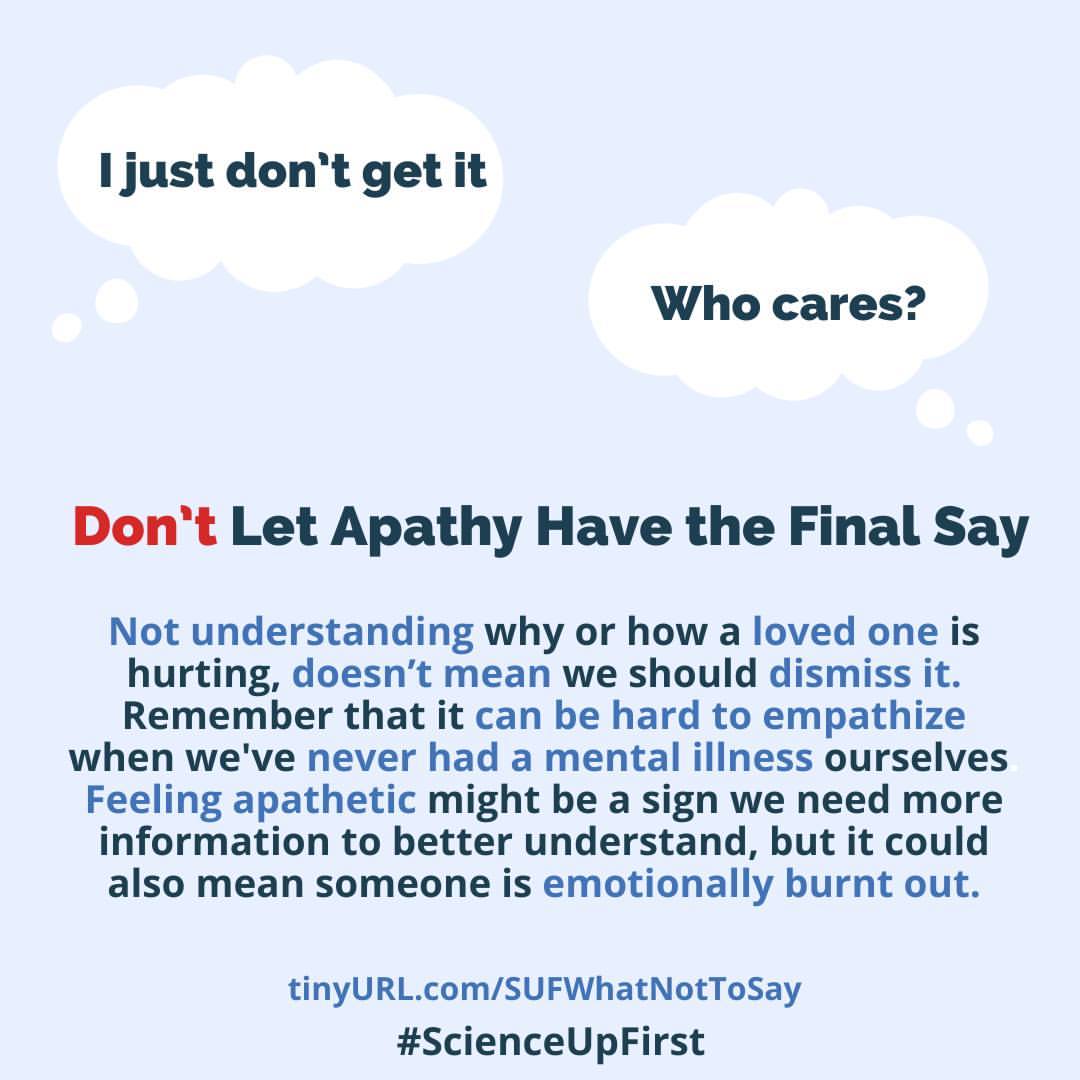
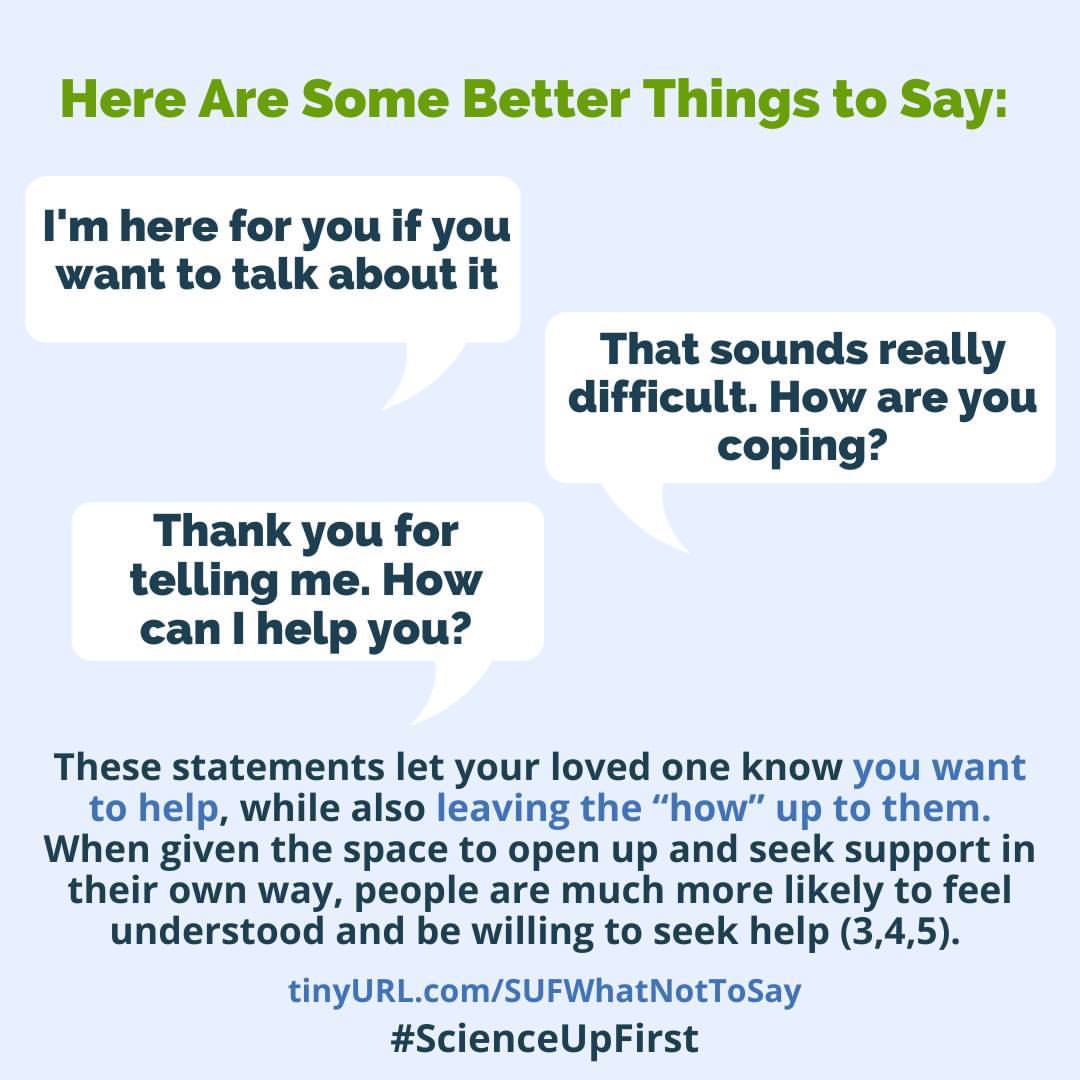
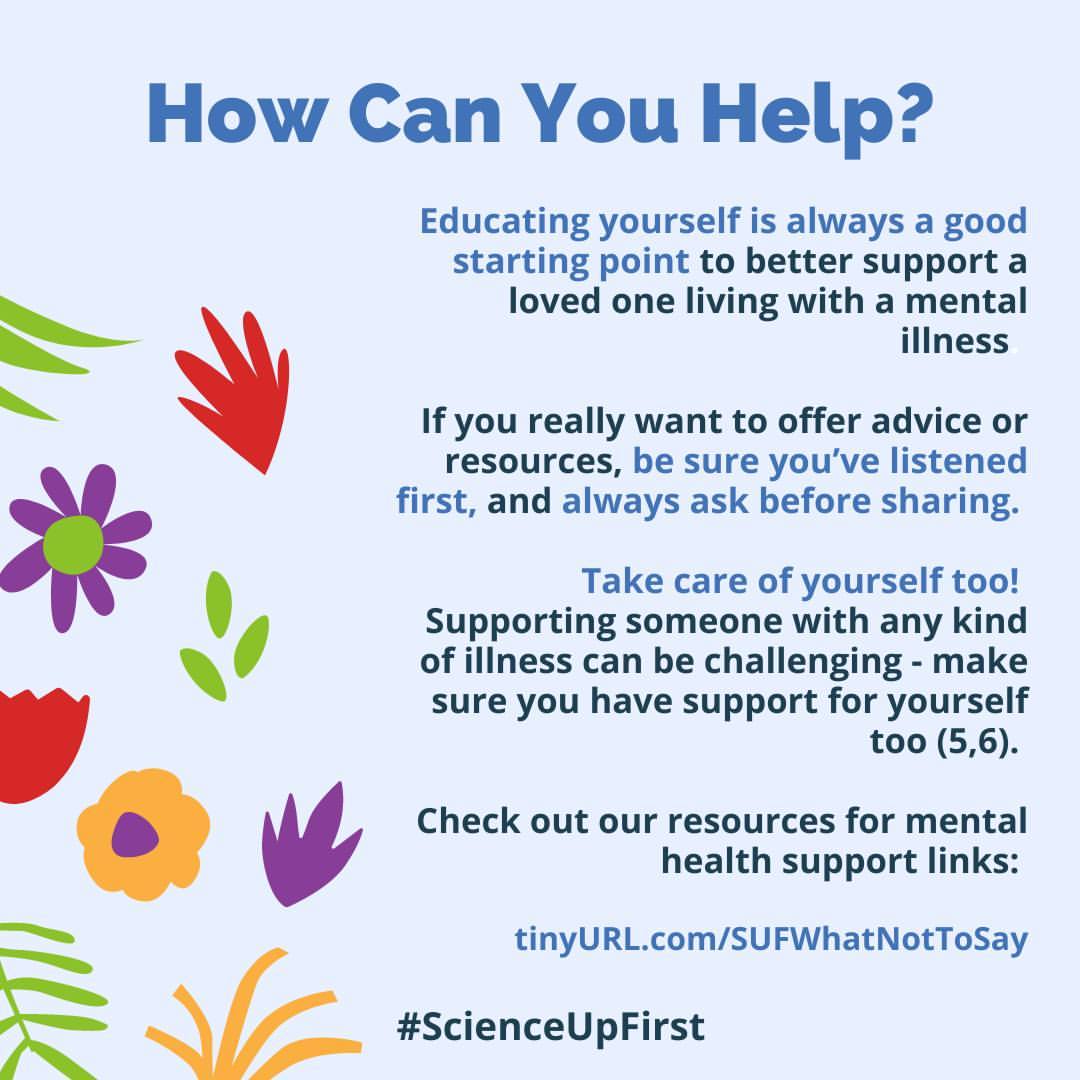
1 out of 5 Canadians will experience a mental illness at some point in their life.
It can be hard to find the right words, especially when someone you care about is living with a mental illness. We often have the best intentions, but sometimes we say things without knowing they are doing more harm than good.
Here are a few things we shouldn’t do:
- Don’t oversimplify – mental illness should not be ignored or dismissed
- Don’t express disbelief – what is happening on the outside is not always a reflection of what is happening inside
- Don’t dismiss their pain – pain is relative and subjective and should not be compared
- Don’t blame or shame – mental illnesses are not anyone’s fault and don’t need a justification
- Don’t let apathy have the final say – being apathetic might be a sign that you are emotionally burnt out yourself
When talking to someone about their mental illness, you should:
- Remind them that you care and that you are here for them.
- Ask what kind of support they need from you.
- Validate their feelings.
- Talk to them as you always have. They are still the same person.
Remember to always ask for their permission before sharing ideas you have heard or read about that could help them. At the end of the day, it needs to be their decision. Our first instinct should be to listen to understand, rather than to tell someone how we think they should feel or behave.
Don’t forget to educate and to take care of yourself, too. Know the limits of what you can personally offer.
Check out our resources for mental health support links: https://tinyurl.com/SUFWhatNotToSay
If you, or someone you know, is in immediate crisis and might self-harm, call 9-1-1 or a help line right away.
Share our original Tweet!
1 out of 5 Canadians will experience a mental illness at some point in their life.
— ScienceUpFirst | LaScienced'Abord (@ScienceUpFirst) May 13, 2024
It can be hard to find the right words, and the last thing we want is to say things that will do more harm than good.#ScienceUpFirst #CompassionConnects
[1/2] pic.twitter.com/dHglbX8Hhl
View our original Instagram Post!

